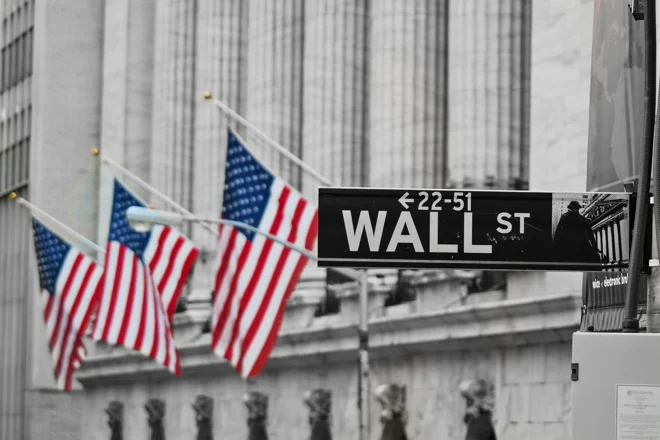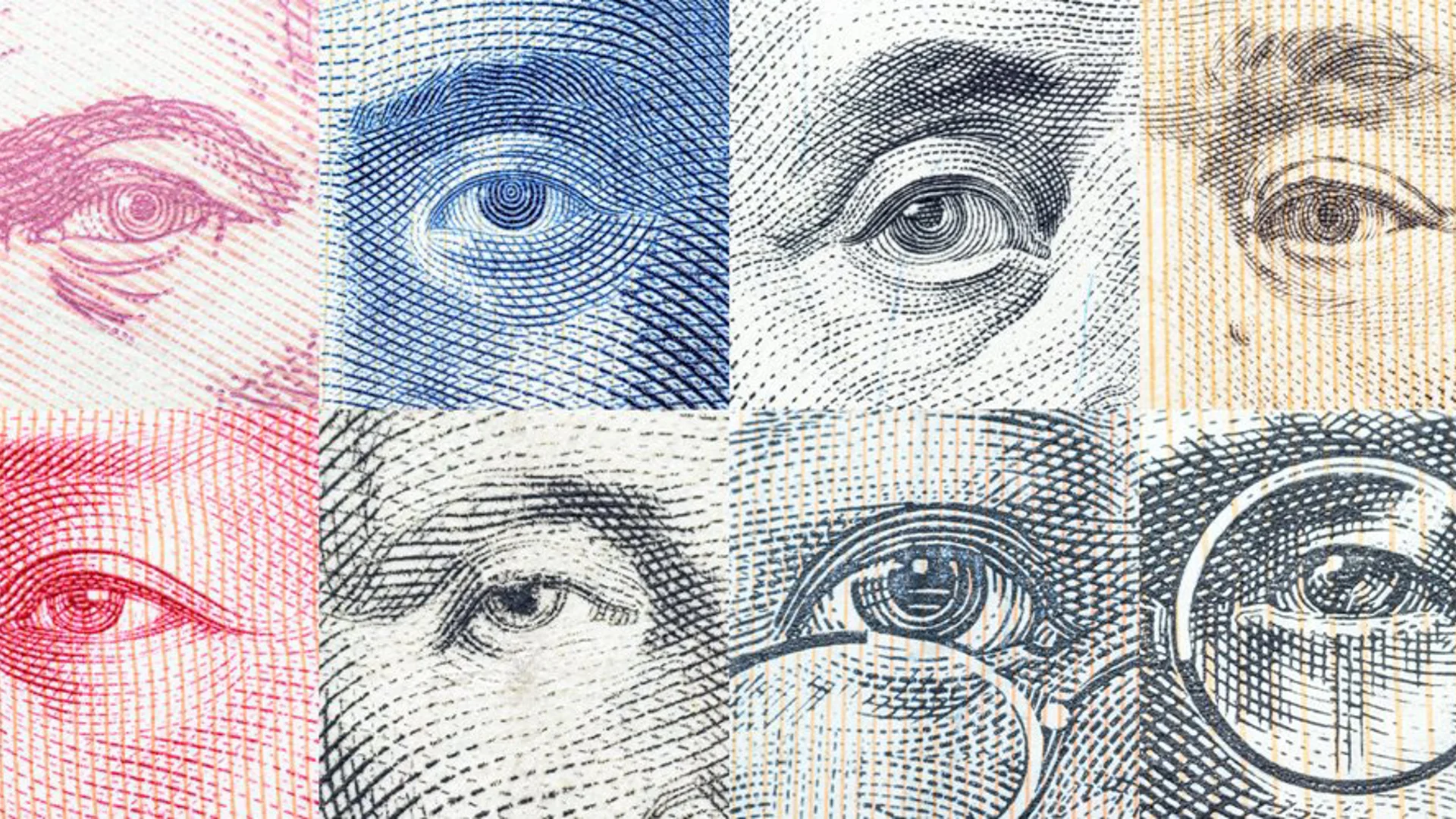When it comes to forecasting the economy and markets, including currencies, we must look at a many economic variables, listen to central bankers and policymakers, and review technical data such as valuations, positioning, momentum, supply and demand. This all feeds into our economic models. However, there’s a simple (although incomplete) short-cut we can use. Looking at how a currency behaves could reveal what direction an economy is trending in. In other words, a currency that appreciates often reflects an economy that’s doing well, and vice versa.
This short-cut makes our life easier, but one should never forget that currencies work in pairs. You exchange one currency to get another one. So, this short-cut rather reflects how the economy of country number one is doing compared to country number two.
In practice, you look at a currency against the US dollar (USD). According to the Bank of International Settlements (BIS), the USD is the most traded currency in the world and, as such, is the world’s reserve currency. Our clients often ask if this could change. We think it’s very unlikely in the near term. In fact, the share of the USD in global foreign exchange (FX) trading has been steady and even risen over the last three decades, despite the emergence of new FX instruments that could have reduced its usage. Petro-yuans (a form of the Chinese currency for oil trading), the rise of cryptocurrencies, as well as an increasing number of central banks building their reserves with gold and new trade alliances within emerging economies, have all failed to depose the dollar.
Having said that, looking at the USD could help us understand the shape of the global economy. When the US economy is doing well, the US dollar rises, again against other currencies, as has been the case lately. A good US economy is a positive development for the rest of the world. So, if other currencies weaken, it’s not necessarily because their economies are doing bad, they could be doing just less good than the US.
Our 2024 currency views
The forecasts featured in our annual Market Outlook at the start of 2024 are playing out. We thought the US dollar would stay supported during the first part of the year – it’s indeed up 3% against its developed markets peers – before weakening when the Fed starts cutting interest rates.
We think this view still holds, though any dollar weakness will be moderate. After months of economic exceptionalism in the US, and stagnation in Europe, both economies are switching gears. The US economy is now moderating, while the Eurozone is slowly recovering, as we had expected. This improving growth differential supports the EUR/USD exchange rate. Expectations of a lower euro have also built up given that the European Central Bank (ECB) looks set to cut interest rates before the Fed does. We think the ECB will cut rates in June, while Fed cuts will come later in 2024. So the EUR/USD currently reflects both ECB and Fed expectations. The significant repricing in interest rates cut expectations is now mostly behind us as currency volatility eases. The EUR/USD is trading within a modest range, averaging USD1.08/EUR so far in 2024, with room to reach USD1.10-1.12/EUR by year-end.
The Pound sterling (GBP) is likely to follow a similar trend. UK economic growth is improving, and there’s less uncertainty about the election now. If Labour wins, as the polls suggest, we don’t think this will change the UK’s economic outlook that much as Labour candidate Keir Starmer is more centrist than previous Labour leaders. Some of the Labour policies could support growth, which could be seen positively by the market, but perhaps others could result in extra regulation in some sectors, which may be seen somewhat negatively. Regardless of the winner, the new government will remain constrained as it will have little fiscal space for major policies. We think the GBP/USD could reach USD1.30/GBP by year-end.
Turning North, the outlook for both the Swedish Krona (SEK) and the Norwegian Krone (NOK) looks stable. The SEK has underperformed the NOK as the Riksbank (Sweden’s central bank) cut the key Repo rate from 4% to 3.75% in early May, while Norges Bank has kept its policy rate at 4.5% since December 2023. We believe that the underperformance of the SEK could continue, albeit more moderately, and the SEK could move more in line with the NOK. Swedish inflation remains in a downtrend and the market is expecting two more interest rate cuts before year-end. But these expectations could moderate as the Riksbank Governor dismissed an additional rate cut in June as a weaker currency could spur a rebound in inflation. This could mean a bout of SEK strength in the short term, though we’d use SEK11.40/EUR as a confirmation towards SEK11/EUR. In Norway, just one rate cut is expected. We think the EUR/NOK will likely trade around NOK11-12/EUR.
There are two risks to our FX views. The first one is inflation. We’ve long argued that the last mile towards the inflation target would be bumpy. Progress on inflation has stalled globally of late and central banks are likely to adjust interest rates slightly lower rather than embarking on a sharp rate cutting cycle. This could lead to a repricing in interest rate expectations and currencies. For instance, echoing the Governor of the Riksbank, the President of the Swiss National Bank (SNB) expressed concerned of a rebound in inflation driven by a weaker currency (the Swiss Franc (CHF) has depreciated 5.5% vs the euro in 2024). His comments poured cold water on more SNB rate cuts, despite being one of the first central banks to reduce interest rates. As a result, we now believe that CHF depreciation is capped at parity against the euro.
The second risk is the US election. It’s a wild card given that it looks like it will be a razor-thin race and a potential source of market volatility. Should Donald Trump win the election, we think the USD may rise, but not as much as it did in 2016 as it wouldn’t be a surprise anymore. It would also depend on the ability Trump would have to pass bills through Congress. Also, as we now live in a more fragmented world along geopolitical lines, any further rise is protectionism could be a renewed headwind for export-oriented economies, particularly for China and emerging markets.
A closer look at the weakness of the Japanese yen
The Japanese yen has made the headlines recently as it’s weakened to levels last seen in the late 1990s. Does that mean that the Japanese economy is in a bad shape? It’s true that the economy contracted in the first quarter of 2024, while most countries grew over the same period. But the key forward-leading indicators (the purchasing managers’ indices) are improving and point to a moderate growth rebound in the second quarter. So the answer is: not really. In addition, Japan finally got out of its negative interest policy, with rates slightly positive now. This should have been a tailwind for the currency.
So why does the yen keep on weakening? It’s mostly about relative anticipations. The interest rate differential with the US will remain negative. The Bank of Japan is unlikely to raise its policy rate much higher (if at all) while the US Federal Reserve (Fed) will likely cut rates a little. Lastly, it’s also because a weaker yen is the consequence of…a weaker yen. You read that right. A weaker yen makes imports more expensive. Japan is one of the largest importers of oil globally. In US dollar terms, oil prices are up 6% so far in 2024, but up 20% in Japanese yen terms. This weighs on net exports (exports minus imports) and domestic consumers’ purchasing power. As such, it’s a bit of a negative feedback loop and, for now, it’s hard to find a reason why the yen could strengthen over the coming months.
Always there for you wherever you are
At Quintet, we pride ourselves on being small enough to really get to know you, yet big enough to give you easy access to the best the world of finance has to offer. Whatever your needs, we will provide objective insights, advice, products and services tailored to your personal goals. And with offices in 30+ cities across Europe and the UK we are always there for you wherever you are. Why not come and talk with us today?
This document is designed as marketing material. This document has been composed by Quintet Private Bank (Europe) S.A., a public limited liability company (société anonyme) incorporated under the laws of the Grand Duchy of Luxembourg, registered with the Luxembourg trade and company register under number B 6.395 and having its registered office at 43, Boulevard Royal, L-2449 Luxembourg (“Quintet”). Quintet is supervised by the CSSF (Commission de Surveillance du Secteur Financier) and the ECB (European Central Bank).
This document is for information purposes only, does not constitute individual (investment) advice and investment decisions must not be based merely on this document.
Whenever this document mentions a product, service or advice, it should be considered only as an indication or summary and cannot be seen as complete or fully accurate. All (investment) decisions based on this information are at your own expense and at your own risk. It is up to you to (have) assess(ed) whether the product or service is suitable for your situation. Quintet and its employees cannot be held liable for any loss or damage arising out of the use of (any part of) this document. All copyrights and trademarks regarding this document are held by Quintet, unless expressly stated otherwise. You are not allowed to copy, duplicate in any form or redistribute or use in any way the contents of this document, completely or partially, without the prior explicit and written approval of Quintet. See the privacy notice on our website for how your personal data is used (https://www.quintet.com/en-gb/gdpr).
The contents of this document are based on publicly available information and/or sources which we deem trustworthy. Although reasonable care has been employed to publish data and information as truthfully and correctly as possible, we cannot accept any liability for the contents of this document.
Investing involves risks and the value of investments may go up or down. Past performance is no indication of future performance. Any projections and forecasts are based on a certain number of suppositions and assumptions concerning the current and future market conditions and there is no guarantee that the expected result will ultimately be achieved. Currency fluctuations may influence your returns.
The information included is subject to change and Quintet has no obligation after the date of publication of the text to update or inform the information accordingly.
Copyright © Quintet Private Bank (Europe) S.A. 2024. All rights reserved. Privacy Statement





